Last Updated on July 30, 2021

By now, a lot of you have probably seen Spike Lee's DA 5 BLOODS, which premiered on Netflix last Friday. Of the ensemble cast, to me, one of the standouts was Norm Lewis, who I hadn't seen in too much before, so having him show up in such a prominent role was an eye-opener. Playing Eddie, who's the defacto conscience of the group, Lewis has a handful of amazing scenes, including a show-stopping moment that, for obvious reasons, I'm not going to go into here (go watch the movie!). With an extensive list of credits on Broadway, Lewis seems primed for some major attention on the merits of his performance here, and he was a joy to talk to, with him giving me some much needed insight into the history behind the film, as well as how his own personal experience informed his performance.
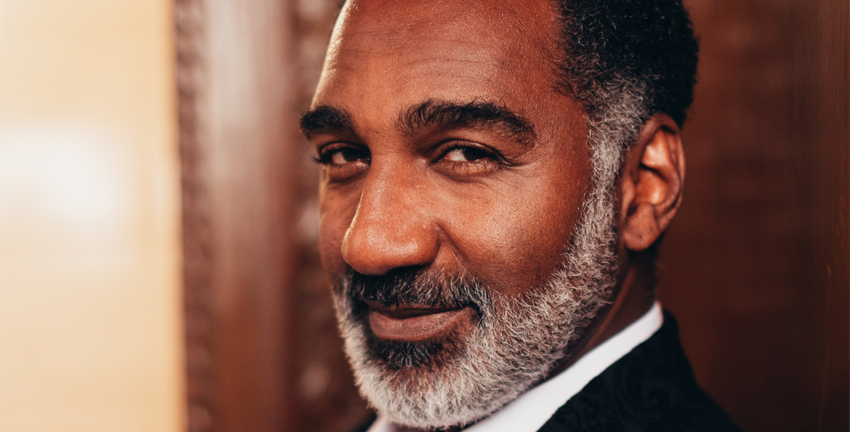
I did a show back in the early nineties, in 1994, called "Miss Saigon" that was on Broadway.
Oh sure…
So I did a lot of studying about the Vietnam war, I knew it from a huge macro level, I knew it from every soldier that had gone through PTSD and the story of my character, in the show, was about trying to fight for the lives of these young orphans left over in Vietnam that these soldiers had fathered. And because they’re such a pure race, they saw these kids as what they called “Bui-Doi”, which means “the dust of life” so they did not want anything to do with any of these kids, so the mothers would give them up and they’d live in orphanages. Anyway, my cousin, my real cousin, was someone who fought in the war, and he fathered three kids and he married that woman from Vietnam and brought all of his family back to the United States, so I had a personal connection with that. I looked at my character like my cousin. So going in with that information, and the Rambos and Apocalypse Now and all these other movies, I had just a broad sense of what the Vietnam War was all about. So this was an eye opening experience for all of us, we all learned that there’s this whole other culture that we just don’t know. I found out the other day that at that time, African Americans made 11% of the United States, but in the war it was 33% of the army.
Wow, that’s a crazy stat…
That dynamic was crazy… didn’t know that for one. Second, this was the first war that was fought that was not a segregated war, there was not a black army and a white army. But, there was segregation. These men not only had to fight being together and fight a war, but they fought against some of the other white soldiers, but there was also some brotherhood going on there too, but for the most part there was a little bit of tension, plus there was civil rights going on at home so that dynamic was just crazy. I was thinking about being 18 or 19 years old and having that mindset – you don’t know if you’re gonna die or not but there was a camaraderie that a lot that these men developed. Some of them even wanted to stay because it was better in the culture in Vietnam than it was at home. Because these people at home did not love you like you brothers did. What this movie does is open a door to a multitude of stories, this is just the tip of the iceberg and I’d encourage anyone to read the book, “Bloods” that this is based on.
I thought it was interesting that this is one of the first movie to deal with the black experience in Vietnam, but also have some real empathy for the Vietnamese themselves. There’s a flashback where the unit fights some VC, but you see their exchanges subtitled, and there’s just chatting about their families, it really humanizes them.
I think Spike wanted to show the different perspective of “why are we fighting this war?” And I guess he wanted to get in the heads of the people over there too because I don’t think they wanted to fight either. It was propaganda, and a whole lot of the leaders trying to have a pissing contest.
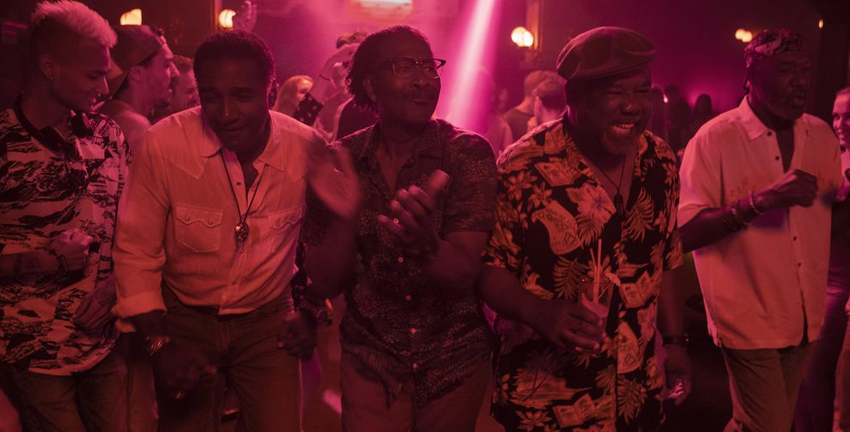
How was the camaraderie on set? How long did it take you and Isiah Whitlock Jr to pull off that awesome handshake.
Well, the camaraderie you saw in the movie was the camaraderie on set. All of those personalities you saw in the film were kind of our personalities on set. I think that’s one reason Spike hired us. He wanted a diverse cast to bring in a unified sort of understanding of each other. The handshake took a little bit of time. That’s called a DAP and we had to learn it because those were authentic daps that these men create that would show which platoon you belonged to. There were different daps for each platoon. It’s called “dignity and pride – D.A.P”. You’re so young, but if you remember “Sanford and Son”
Oh sure!
Yeah, those were on in the seventies, and the “slap my hand” kind of thing was an adaptation of what that was. It was started over in Vietnam.
That’s really fascinating. I had no idea of the history. Thanks for telling me!
Well, ya see, that’s the thing. We learned it too. None of us knew that either (laughs).
I also like that Lee went the anti-Irishman route. You all just play yourselves in the flashback without CGI.
What Spike explained to us, it’s our memories, it’s our dream sequences if you will. I think people would have spent too much time on “wow, that CGI looks great or that makeup looks great or that wig is good…” He didn’t want people getting caught up with that, and if you’re into the story you just go with it. The dynamic is, “let's just make it simple. Let’s tell the story, we know you’re younger in the flashback” I think it works and adds another dynamic to the storytelling.






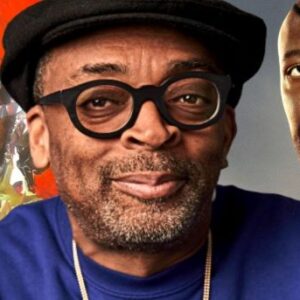
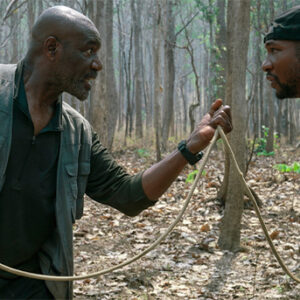
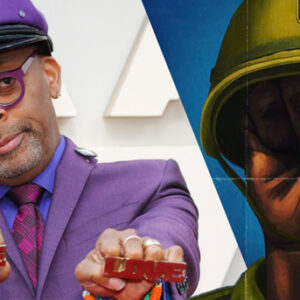
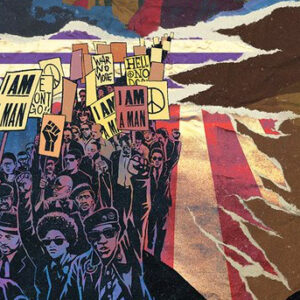





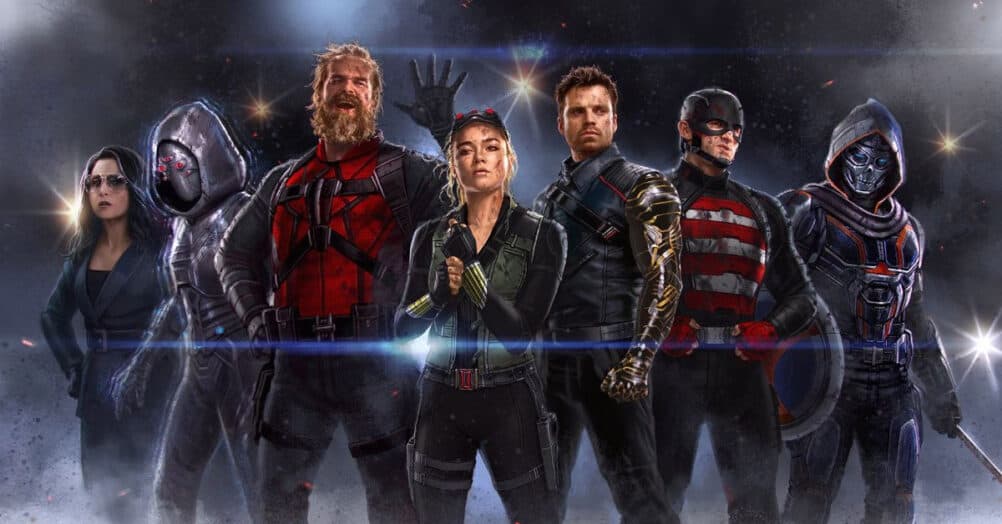
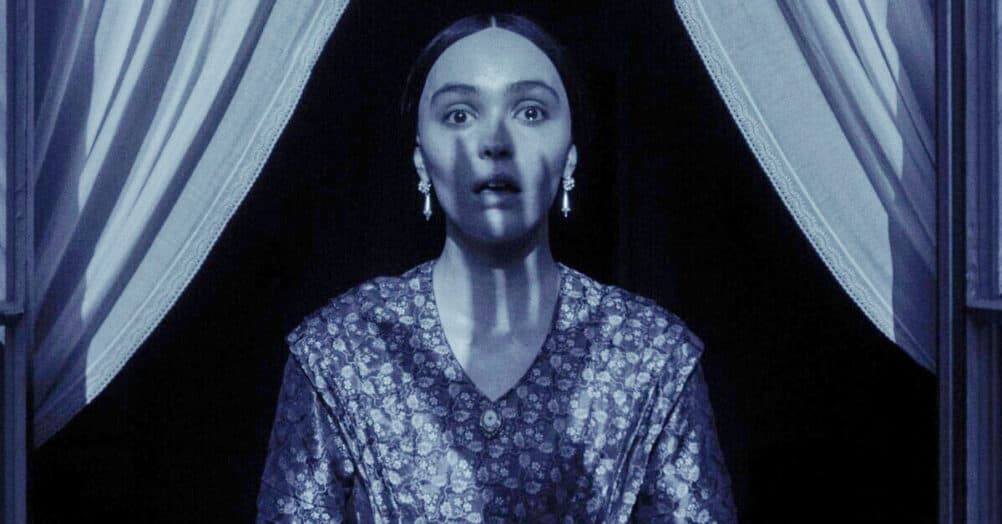



Follow the JOBLO MOVIE NETWORK
Follow us on YOUTUBE
Follow ARROW IN THE HEAD
Follow AITH on YOUTUBE